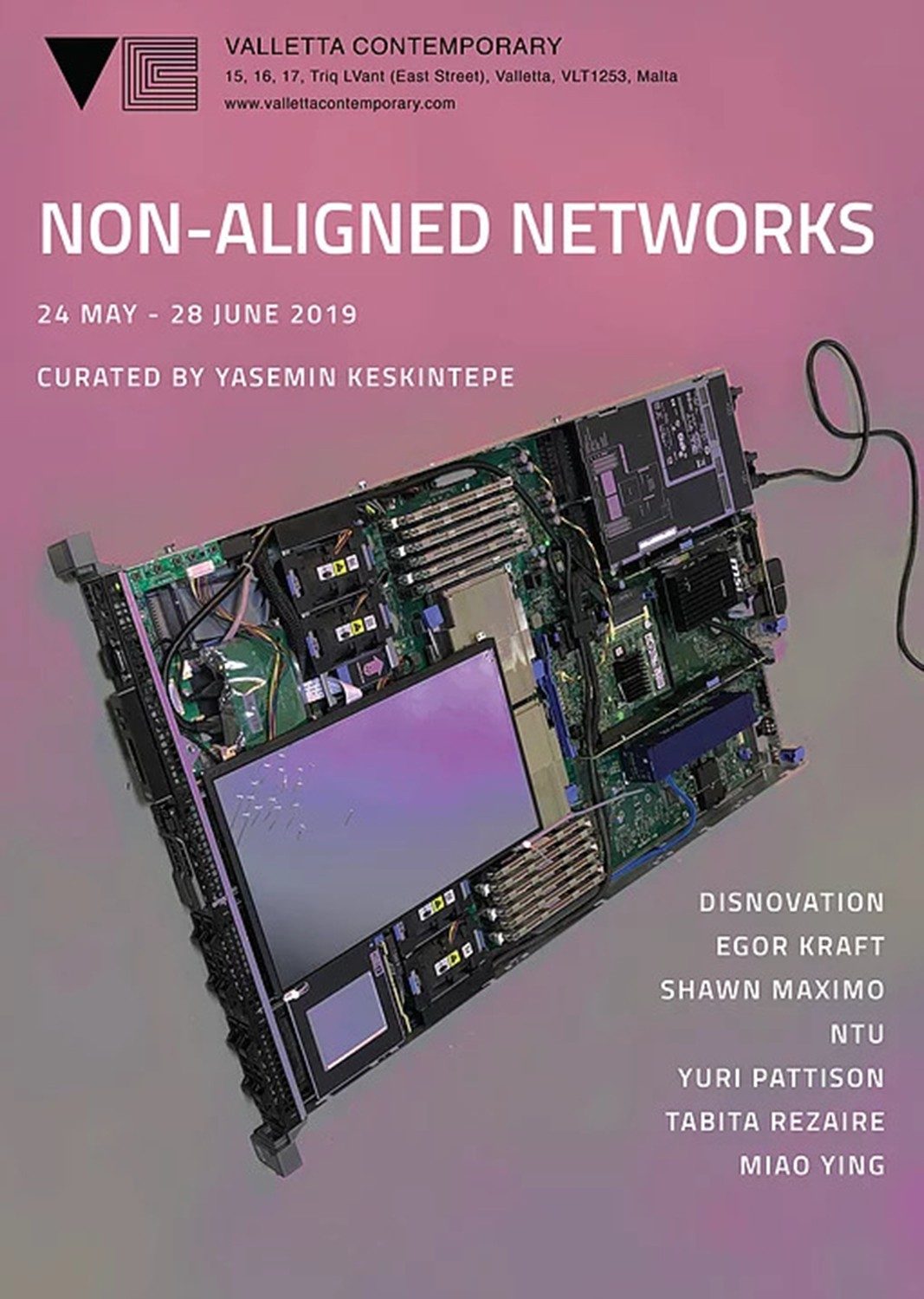
Egor Kraft
Non-Aligned Networks
May 24 – June 28, 2019
Valletta Contemporary, Malta
with works by Disnovation, Egor Kraft, Shawn Maximo, NTU, Yuri Pattison, Tabita Rezaire, Miao Ying
The Internet has become a boundless repository of information enabling a global exchange of data. Constructed upon an infrastructure of online platforms, fibre optic cables and data centres, it ushered in the age of planetary scale computation. The design of wireless communication networks became crucial for the way information is controlled. Whereas the idea behind the founding of the Internet was to imagine a space of unrestricted access to information, of civic debate and social inclusion, the actual implementation turned out quite differently. The control over data and networks seems to have become a determining factor of governmentality, considering the ongoing arms race of data accumulation and analytics. News of privacy breaches, censorship and surveillance have exposed the power struggles that are exercised by governments and corporations alike. Hence, the design of information technology extends not just to how political space is constructed but also to how the content of the political as a domain of human action and ethics is created.
This exhibition explores the complexities of the Internet as a political space and the dynamics of governing information online. Considering that information technologies have become instrumental in advancing some of the greatest challenges we are facing today – the deterioration of freedom of expression leading to the weakening of democratic foundations; the dissociation of publics furthering populist movements and authoritarianism; as well as large scale securitisation – there is an urgent need to create new points of entry and accessibility.
The exhibition brings together an array of works that centre on alternative forms of information access, sharing and circulation. It looks into the development of the decentralised web and independent networks, as well as the spaces they could inhabit, traces initiatives on fair data practices, and draws parallels to spiritual and natural communication methods to investigate possibilities of decolonial technologies and safe places for resistance. It explores forms of expression arising from subcultures that try to escape and circumvent censorship. The pieces thus discuss tendencies that propose a change to our networked society and introduce models that counter today’s predominant cloud infrastructure models and data economy. As such, the exhibition explores and questions alternatives to current Web architectures in search of different designs and navigation systems, asking what forms of commonality and publics could emerge from them.
Curator: Yasemin Keskintepe